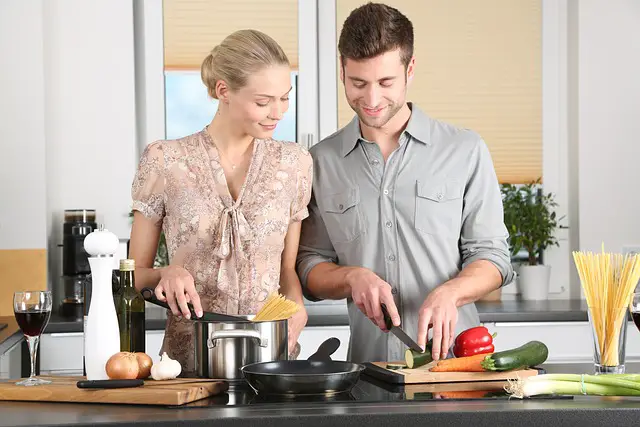Cooking good food for your partner is one of the things that strengthen a relationship. But what happens when your partner is a bad cook? Or what should you do if your partner can’t cook?
Sending your partner away because she can’t cook to your taste or isn’t a good cook is childish. No reasonable person hears that and believes that such a person (who sent his partner away) is mature enough for a relationship.
Navigating the Challenges: Dating Someone with Kids
If you are good at cooking, it will be cool if you teach your partner how to cook too. Don’t see it as bothering. She is your partner, and she deserves to know everything she has to know to sustain the love in the relationship.
Honestly, it is unacceptable for a man to eat out simply because he has a wife at home who is a bad cook. Eating out does not solve the problem.
I’ve witnessed situations where a marriage of two weeks collapsed simply because the woman can’t cook to her husband’s taste. Not that she can’t cook, but because she can’t cook to her husband’s taste. He sent her away and threatened to divorce her.
Like I said earlier, sending your wife away or ending your relationship with someone simply because she can’t cook well is childish.
It is also possible that you can’t cook yourself; what stops you from advising her to take some cooking classes?
Signs of Emotional Abuse in Relationships
Helen, a good friend of mine, on this issue argued that any man who sends his wife away on the grounds of being a bad cook is only covering up. She argued that the man never truly loved his wife. Using ‘bad cook’ as an excuse is absolutely nonsense.
Buttressing Helen’s view, Tina posited that relationships work only when both partners accept that they are two different individuals with different wants and needs, and the only way to live in peace is by substituting their personal desires for the general (both man and woman) desire.
Help Your Partner With Their Cooking Lapses
Assisting your partner in overcoming occasional cooking challenges can be a rewarding and collaborative experience that strengthens your relationship.

Instead of focusing solely on their lapses, consider reframing the situation as an opportunity to create shared memories and enhance culinary skills together.
Start by approaching the kitchen as a team, fostering a positive atmosphere. Encourage open communication about preferences and dietary restrictions, ensuring a mutual understanding.
Collaboratively planning meals can turn cooking into a joint venture, transforming potential lapses into shared successes.
Rather than pointing out mistakes, offer constructive feedback. Frame suggestions in a way that highlights improvement rather than shortcomings.
This positive reinforcement can motivate your partner to experiment with flavors and techniques, turning the kitchen into a space for growth and exploration.
Consider attending cooking classes or workshops together. Learning new skills side by side not only helps your partner refine their techniques but also strengthens the bond between you.
This shared interest can become a regular activity, providing ongoing support for each other’s culinary endeavors.
Celebrate achievements, no matter how small. Acknowledge the effort put into each meal, reinforcing the idea that cooking is an evolving skill.
By emphasizing the positive aspects, you create an environment where your partner feels encouraged to continue improving.
Lastly, be a proactive kitchen companion. Offer to help with prep work, share responsibilities, and turn cooking into a shared experience rather than an individual task. This not only lightens the load but also fosters a sense of togetherness in the kitchen.
In conclusion, transforming cooking lapses into collaborative learning experiences can strengthen your relationship and create a positive, supportive atmosphere in the kitchen.
By approaching cooking as a team effort, providing constructive feedback, and celebrating achievements, you can turn the kitchen into a space for shared growth and enjoyment.

